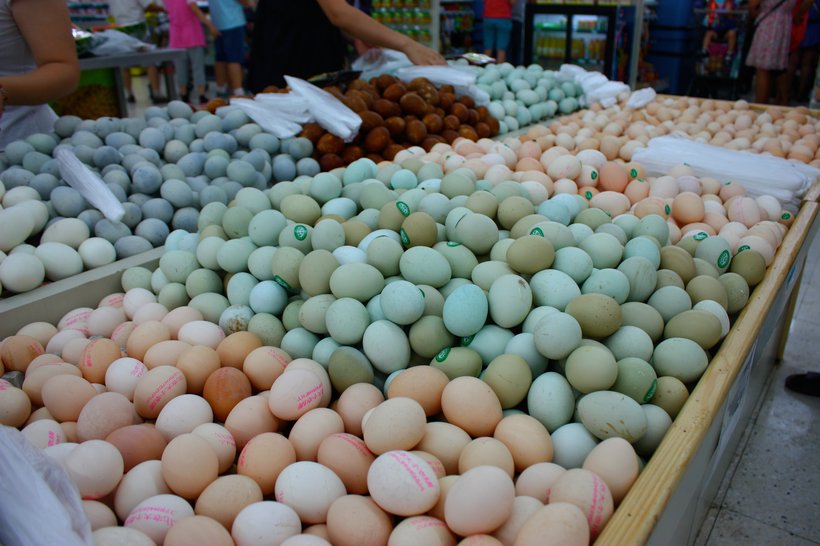
Published on Nov. 16, 2023
China’s Evolving Egg Breeder Market: Challenges and Opportunities
China’s egg industry has witnessed a remarkable transformation in recent decades, with a shift from relying solely on imported layer breeds to cultivating local breeds that cater to domestic market demands. This shift has been driven by a variety of factors, including changing consumer preferences, market feedback, and advancements in breeding technology.
During the 1970s and 1980s, egg farming in China was characterized by rudimentary breeding practices and predominantly local chicken breeds. This resulted in lower egg production compared to breeds developed in the developed countries. However, the introduction of advanced breeding materials from abroad in the 1980s marked a turning point. The egg industry adopted a strategy of “breeding locally whilst allowing the imports of foreign chicken breeds” leading to rapid growth as foreign breeds captured the market.
By 2009, China successfully bred local egg layer breeds with independent intellectual property rights, which marked a shift towards prioritizing domestic breeding. The National Layer Genetic Improvement Program further supported this transition by fostering collaboration between academia, research, and industry to develop new layer breeds that met local demands. This led to a substantial increase in the market share of domestically bred layer breeds, rising from 29% in 2005 to about 71% in 2020 on GPS segmentation.
Several factors contributed to this change in market dynamics. Firstly, the unique preferences of Chinese consumers, who prefer eggs with specific shell colors (Tinted shelled eggs are the most popular choice of eggs), impacted breed popularity. Additionally, the speed of responding to market feedback allowed Chinese breeding companies to tailor their breeds more effectively to consumer needs compared to foreign counterparts. Moreover, the difference in breeding environments and the impact of avian flu outbreaks and the COVID-19 pandemic significantly affected the supply of imported breeds (China’s closed border policy), driving a greater reliance on domestic breeds.
The case of Hendrix Genetics, as one of the 2 global layer breeders, demonstrates the challenges and opportunities in this evolving market. Despite its historical significance and global presence, Hendrix Genetics experienced in recent years a decline in the Chinese market due to
its inability to export layer breeds to China. However, the company’s partnership approach and commitment to innovation have led to its resurgence.
With the arrival of new shareholders, a “In China For China” strategy has been established. This strategy reflects its determination to regain market share in China. By building great-grandparent farm in China and collaborating with local partners, Hendrix Genetics aims to ensure a stable supply of high-quality breeds that can be tailored to the Chinese market’s unique demands. Furthermore, Hendrix Genetics’ continuous focus on innovation and adapting to consumer needs has enabled the development of breeds with improved egg production rates, egg quality, and disease resistance. The company’s dedication to promoting breeding capabilities across various sectors, such as yellow-feathered broiler breeding (SASSO), further underscores its commitment to industry advancement.
In conclusion, China’s egg industry has undergone a significant transformation from relying on imported breeds to cultivating local breeds that cater to domestic preferences and market demands. The success of this transition is attributed to factors such as consumer preferences, market feedback, and advancements in breeding technology. Because we, as Hendrix Genetics, are committed to our breeding philosophy, we continue to invest heavily in innovations in our breeding program, integrating field data analytics and customer feedback when defining our breeding goals. In doing so, we are expanding our global customer base and market share, strengthening our position as a leader in setting the standard for sustainable animal breeding. “We should never forget that the success of our customers and partners is our success.”
” We should never forget that the success of our customers and partners is part of our success ”
Part of our legacy is that we acknowledge that production of first quality eggs is a fundamental attribute of the laying hen. We are committed in creating value for all players in the global egg chain. Our balanced breeding program contributes to this commitment with every new generation of laying hens being born. Imagine the impact of 3 eggs extra per hen housed as a result of better egg laying persistency, a lower feed conversion of 0.01 points or decline in mortality with 0.2%. These numbers may sound small, but when you have thousands or millions of laying hens in your barns, or when you look at it from the impact coming from parent stock, or grandparent stock, than these numbers do become big!
About the Chinese egg market
- 1 billion Doc sales annually. 49% Tinted, 49% Brown, 2% (White/Green)
- Housing system: cage, and emerging cage free (2-3 million capacity today)
- Average age of depletion between 72-80 wks. (egg price dependent)
- The smaller the egg, the higher the premium
- Robustness is highly recognized due to severe disease challenges (MS, Large Livers, etc.)
- Egg production is most concentrated in the east and central regions



